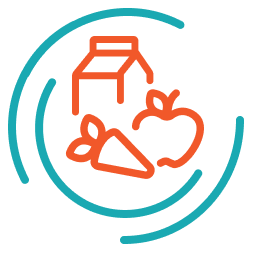
Call for Partners: Urban Agenda for the EU Partnerships on Food and Cities of Equality
About the Urban Agenda for the EU
The Urban Agenda for the EU (UAEU) addresses urban challenges by setting up Partnerships between cities, the European Commission, other EU institutions and bodies, national governments and other stakeholders such as non-governmental organisations.
These partnerships develop action plans that contribute to the three UAEU pillars: better regulation, better funding and better knowledge.
In 2016, the Pact of Amsterdam presented the first 14 urban themes which resulted in an equal number of Partnerships. With the adoption of the Ljubljana Agreement in November 2021, four new themes were added to the existing list of UAEU priority themes:
- Greening Cities
- Sustainable Tourism
- Food
- Cities of Equality
At the end of 2022, Partnerships have been formed for the first two themes: Greening Cities and Sustainable Tourism.
This year, the UAEU organises a new call to cover the two new themes on Food and Cities of Equality.
Ex-Ante Assessment
The call benefits from the prior preparation of two Ex-Ante Assessment reports on Food and Cities of Equality. These reports play a crucial role in enhancing the efficiency of future multi-level cooperation on these two themes by providing guidance on focus, timing, and activities. It's worth noting that the Thematic Partnership in the future will have the freedom to further shape the particular topics they wish to address, taking into account the recommendations provided in these reports.
You can access and download the reports from the resources section located in the left-side column, as well as on the webpages of the respective partnerships.
Background Documents
The call is accompanied by Background Documents explaining the eligible applicants, the selection process and criteria, as well as the responsibilities for each category of partner. They also provide descriptions of the general themes that the partnerships will focus on.
You can access and download the Background Documents from the resources section located in the left-side column, as well as on the webpages of the respective partnerships.
The transformation of food systems requires a systemic approach, and the Thematic Partnership should prioritise the role of cities in leading this transformation. Considering the current momentum and the need for comprehensive legislation to ensure food system resilience, the partnership should align itself with ongoing trends and initiatives. It would be beneficial for the partnership to be supported by the upcoming EU Sustainable Food Systems Framework and the EU Food Policy Council.
The main objective of the partnership is to foster coordination and collaboration between these initiatives, leveraging their combined efforts to drive transformative changes in food systems and position cities as catalysts for this change. The partnership recognises the importance of flexibility and a systemic focus, enabling it to adapt and align with ongoing processes.
The UAEU Partnership on Food operates based on core values that guide its monitoring activities. These values include maintaining a food system perspective, supporting multilevel governance, considering the real price of food (including externalities), and recognising food as a human right and a common good.
To promote sustainable and equitable food systems, the partnership should address key themes such as agroecology, food justice, access to land, and public land management. It should emphasise the importance of localising food systems, incorporating the external costs of food production into prices, and encouraging public procurement of local and organic foods. By advocating for policy alignment and resource pooling, the partnership has the potential to drive systemic transformation within the European Union and contribute to broader objectives, such as the European Green Deal and the United Nations Sustainable Development Goals.
The concept of "Cities of Equality" lacks an agreed-upon definition in the context of policy and regulation. This presents both a challenge and an opportunity for the new Thematic Partnership. The idea of equality recognises that certain groups of people, now legally protected based on characteristics such as race or ethnic origin, disability, sex and sexual orientation, religion and belief, among others, have historically faced discrimination.
The primary focus of the new Thematic Partnership will be on addressing specific issues related to equality within cities. Cities that successfully and proactively foster environments of equality are those that take into account the diverse needs of all individuals and social groups. They plan and provide equal opportunities for everyone, irrespective of age, disability, gender, sexual orientation (LGBTIQ), religion and belief, race and ethnic origin (including country of origin), or socio-economic status, ensuring that no one is left behind.
In order to achieve this ambition whilst creating the environments for equality, it is necessary to employ both targeted interventions that specifically benefit protected groups and holistic thinking that aims to ensure cities work for everyone. The principle of intersectionality, which acknowledges the overlapping and interconnected nature of various forms of discrimination and disadvantage, will be essential in this endeavor. By considering the unique challenges faced by different individuals and communities, the Thematic Partnership can strive for comprehensive and inclusive approaches towards achieving equality within cities.
How to apply
Cities (of all sizes), Regions, Member States, Partner States, national city umbrella organisations, and other stakeholders which are interested in joining one or both of the two new Thematic Partnerships on Food and Cities of Equality can show their interest by submitting the following application(s) by 29 September 2023 at 18:00 (CET).
Please note that a separate survey should be submitted for each of the Thematic Partnerships.
Note: After the assessment of applications by external experts and by the Urban Agenda Technical Preparatory Group, a proposed list of selected partners will be presented at the Directors Generals on Urban Matters (October 2023) and/or Informal ministerial meeting on urban regeneration (November 2023), seeking for their decision. The selected partners will be notified by email and will be invited to confirm their availability for joining the respective Thematic Partnership starting November 2023.

